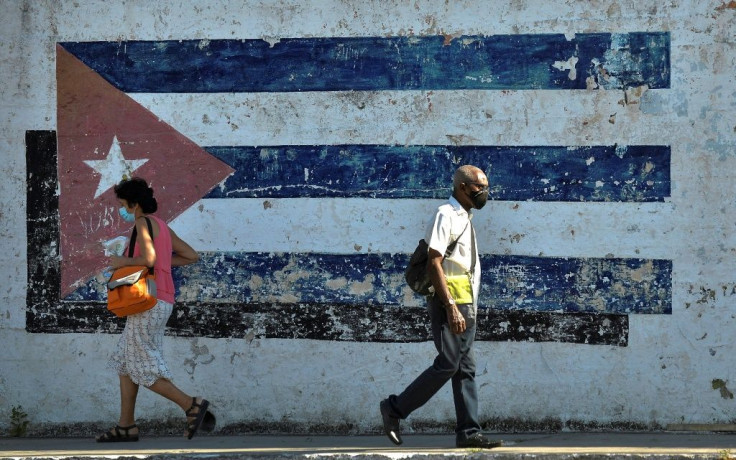Cuba: Five Things To Know
Cuba, the scene of unprecedented anti-government protests on Sunday, is one of the last remaining communist countries in the world, and still lives under a Cold-War era US embargo.
Here are some key facts about the island.
On January 1, 1959, dictator Fulgencio Batista, in power since a 1952 coup, was overthrown in a revolution led by Fidel Castro, who established a socialist republic.
In 1961, anti-communist Washington severed diplomatic relations. Months later, Castro's forces defeated 1,400 rebels in the US-backed Bay of Pigs invasion.
The US discovery of Soviet missiles in Cuba in 1962 set off the most serious crisis in the Cold War, threatening nuclear conflict.
The same year, the United States imposed a strict economic and financial embargo on the island.
When the Soviet Union collapsed in 1991, Cuba was plunged into economic turmoil and managed to survive after legalizing the use of the US dollar and opening up to tourism.
In 2006, Castro, who was ill, temporarily transferred power to his brother Raul, the defense chief.
Raul was named president two years later and Fidel also handed him leadership of the all-powerful Communist Party in 2011.
Fidel died in 2016, aged 90.
A new generation of Cuban leadership came in 2018 when Miguel Diaz-Canel became president, then first secretary of the Communist Party in April 2021.
On Sunday, tired of a crisis which exacerbated shortages of food, fuel and medicine, thousands of Cubans took to the streets in the capital Havana, as well as dozens of towns and villages, in an unprecedented mobilization for the communist island.
Cuba is the biggest island in the Antilles and became a Spanish colony after explorer Christopher Columbus landed in 1492. African slaves were used for labor until 1886.
During its 1895-1898 war of independence, the United States backed the Cuban rebellion against Spain and sent troops to the island to shore up the struggle.
After Spain's defeat, Cuba was essentially ceded to the US, which installed a provisional military government.

Cuba became independent in 1902, but Washington retained control by grafting the "Platt Amendment" onto its constitution, giving it the right to intervene in the island's affairs.
Most of the law was repealed three decades later.
Before the Covid-19 pandemic, a leading source of hard-currency income came from thousands of doctors hired out to countries in Africa and Latin America under government-to-government contracts.
Money sent by family living abroad is the second source of revenue in Cuba.
The island, which has a population of 11.2 million people, also earns revenue from exports of nickel, tobacco, including Havanas, the reputed Cuban cigar, and medicines.
In 2017, China became Cuba's top commercial partner, replacing Venezuela, which is mired in a major economic crisis.
Economic growth plummeted in 2020 by 11 percent, the lowest for nearly three decades due to the absence of tourists and the strengthening of US sanctions during President Donald Trump's term.
Trump's predecessor Barack Obama had marked a brief thaw, with the reestablishment of diplomatic relations.
The vast majority of the Cuban economy is controlled by the state, but Raul Castro unveiled reforms in 2011 to boost the private sector's role.
The arrival in 2018 of 3G mobile internet opened the way to major social protests.
At the beginning of this year, in a bid to ramp up modernization of the economy, Cuba merged its two local currencies with the goal of making it more efficient and comprehensible for foreign investors.
The government has also decided to open up the majority of economic activities to the private sector, though not key areas like the media, health and education.
Cuba, which started to make its own vaccines in the 1980s, is developing five vaccines against Covid-19.
The country has approved for emergency use the most advanced of them, Abdala, the first conceived in Latin America.
© Copyright AFP {{Year}}. All rights reserved.





















